Articles
What Analytics Training do I need?
“Success is a group project. When outliers become outliers it’s not just because of their own efforts. It is because of the contribution of lots of different people” – Malcolm Gladwell
Advanced analytics is booming. Successful companies have realised that a data driven approach to decision making leads to improvements in processes and outcomes. Leaders in analytics are finding a significant return on investment from their analytics projects and strategies.
However, there is a large analytics skills gap – not enough people have the right skills to drive analytics to the heart of business decision making. We know that analytics works – how do we make it work for us?
There is no one size fits all approach to analytics training. Different people in different organisations have different requirements.
However, there are some tools that you can use to guide you on your journey. This article is a collection of tools that you can use to assess what training is right for you.
Business – Analytics – Business Analytics
All analytics projects start with a business problem. We have customers that we want to keep or devices that we need to service. Different business problems require different analytical approaches – many require different types of analyst.
We can think of analytics expertise as falling into 4 quadrants:
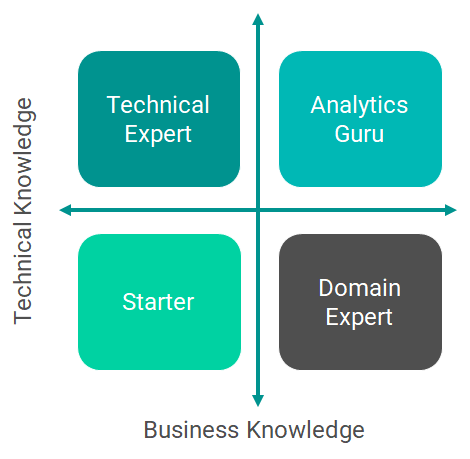
Being an analytics guru requires deep industry knowledge and extensive knowledge of statistical techniques. However, not everyone needs to be an analytics guru. Some people need to know just enough analytics to ask the right sorts of questions of analysts or consulting companies. Being an analytics manager or a project manager on an analytics project requires a very different skillset to being an analyst.
Take a step back and think about where you need to be in terms of the balance between business skills and experience and statistical techniques. Remember also that business knowledge is not just knowledge of a particular line of business but a broader knowledge of business processes, change management and domain expertise.
Key Skills
There are certain key skills that enable us to become better at what we do. Every toolbox needs a hammer – just as every analyst needs to be able to read SQL. However, different job types require different expertise – an Analytics project manager may need to be familiar with Prince II and Agile methodologies as well as the CRISP-DM data mining framework.
The following scatterplot situates some of these key skills on our Analytics Expertise Quadrant:
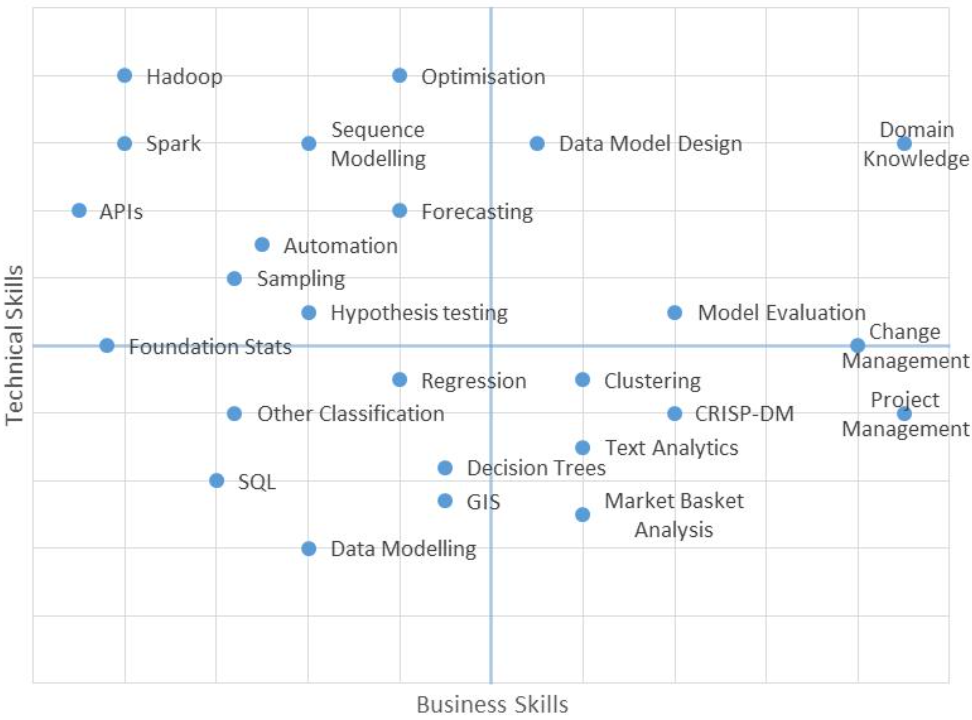
Think again about what kind of analyst you want to become. There may be some foundational technical skills that you need to move from a starter to a statistical analyst. However, business skills such as change management are key to growing into an analytics guru.
3 Stages of Growth
We can think of our growth as analysts at 3 different stages. Each stage of growth requires a different training intervention:
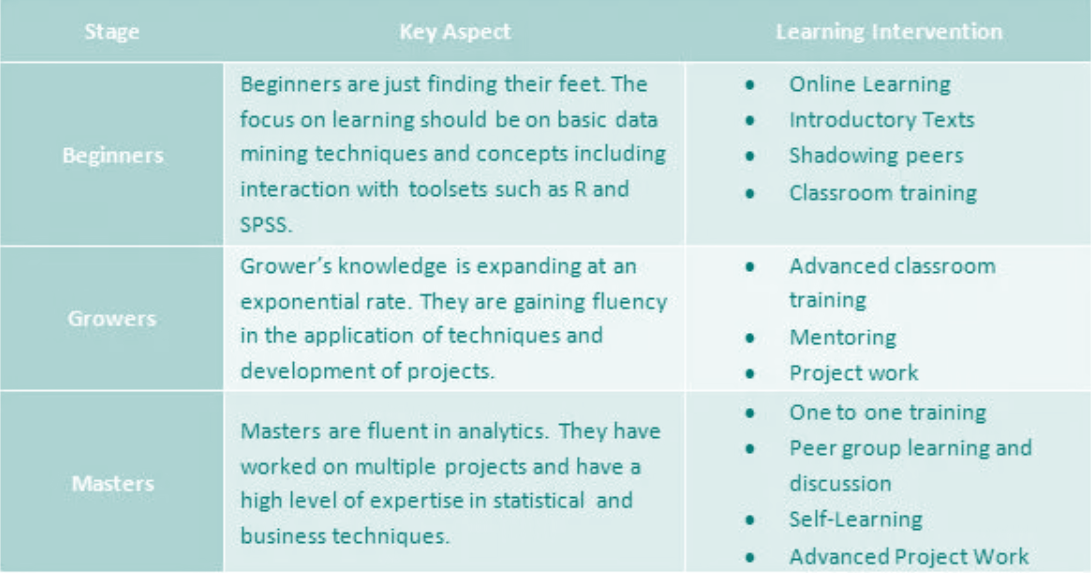
Ways of Learning
We are all different. It should be no surprise that we all have different ways of learning. Some of us prefer to learn in groups, others prefer to learn alone. Some people prefer to know the theory first while others prefer to just apply a set of tools to solve a problem.
Considerations of how we learn are important in assessing the best training for our own needs. We can think of learning styles as being abstract versus concrete and theoretical versus applied.
Think about how you like to learn – that will guide the best type of training for you.
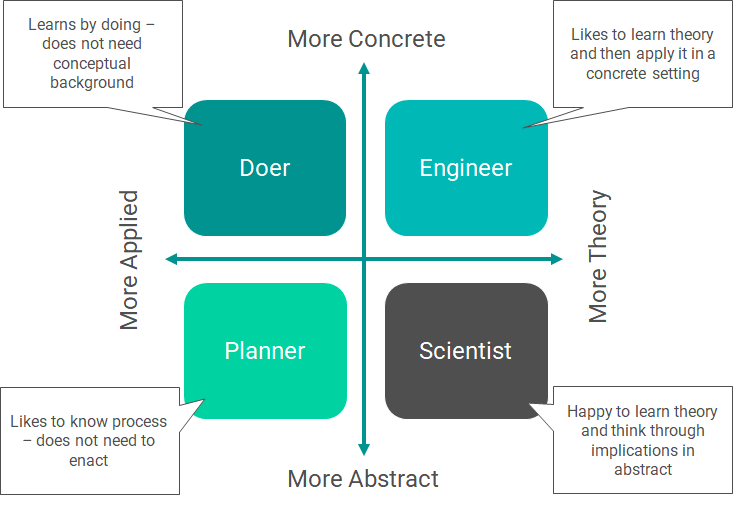
Praxis Makes Perfect
Ancient Greek philosophers defined praxis as the process by which a lesson is applied. They believed that we do not learn just by taking in knowledge but by acting out this knowledge on the world. Tony Wilson of Factory Records defined praxis as “doing something, and then only afterwards, finding out why you did it!”
In analytics praxis makes perfect! We learn analytics best by doing analytics. Make sure that any training that you undertake is associated with a project or task though which you can practice your mastery. Remember – analytics isn’t just about doing analysis it’s about analysis in a business setting.
At each stage of the learning practice task may be most appropriate:
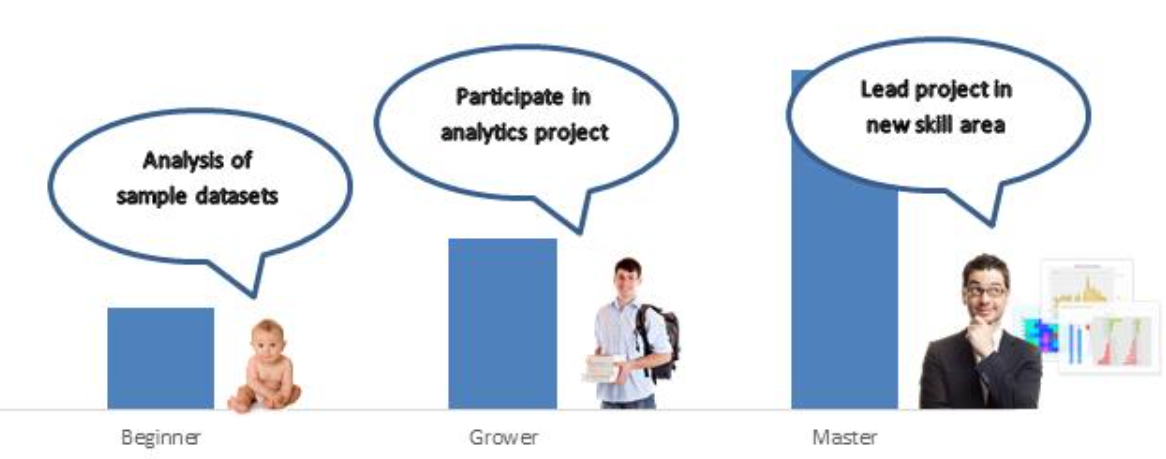
Gap Analysis Framework
A gap analysis of areas for improvement may help you to design the best training plan for your situation.
Think about the gaps under the headings that we have discussed:

A sample analysis is presented for your reference:
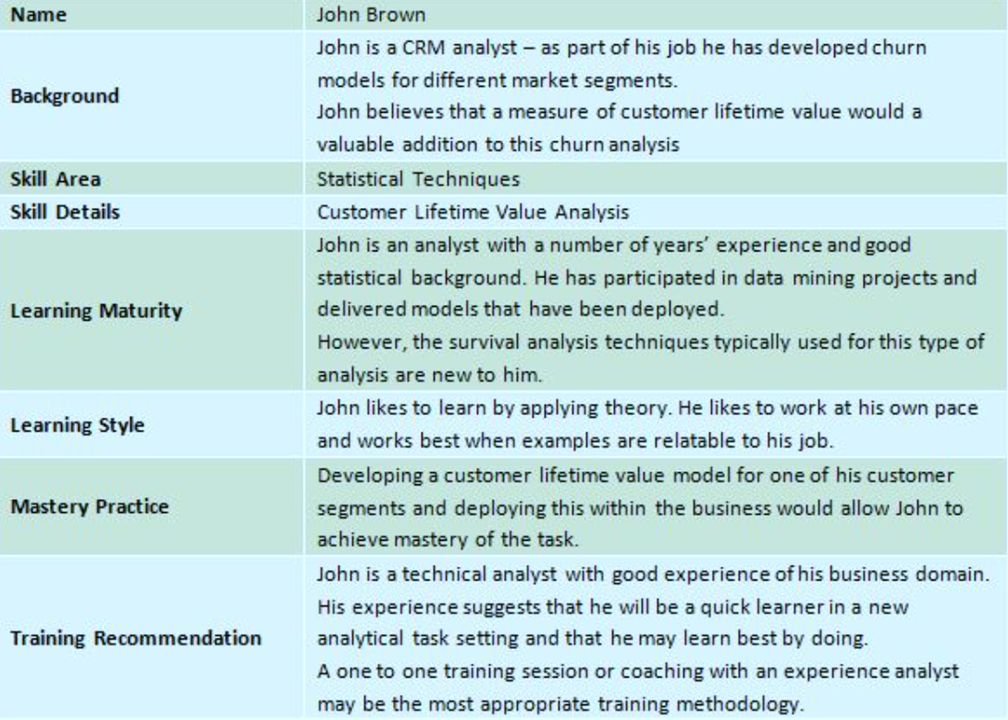
What’s best for me?
Our training needs are multi-faceted. There is no one way to become a better analyst. Different roles require different skillsets and as we mature our skills requirements change. Classroom training is not always the right answer to your training need. Sometimes a one to one training session with a skilled analyst or a long term mentoring program may be the best value for you and your organisation.
We recommend that you take the framework applied in this article and think about how it fits your situation. Once you have done this talk to internal and external experts to put in place a plan that fits your needs.
Version 1’s experienced consultants are on hand to help you understand your SPSS needs – from consultancy and training to finding the best software and license type for your analytical and usage requirements. Contact us to discuss your requirement and identify the best SPSS solution for you.
Related Articles
Take a look through our SPSS Articles covering a broad range of SPSS product and data analytics topics.





